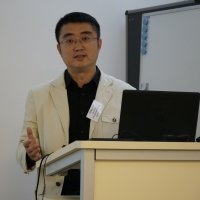Is China Hungry for Low-Carbon Beef?: A Green Tea Chat on Deforestation and Agricultural Commodities with André Vasconcelos and Ren Peng
Submit a question
The vast majority of deforestation is being driven by the agricultural expansion of a handful of commodities, including beef, soy, palm oil, wood pulp and cocoa. The greenhouse gas emissions from deforestation linked to these five commodities in only six countries is greater than annual emissions of Germany. As a major consumer country, China accounts for 30% of global beef imports and can play a critical role in contributing to support actions to reduce these emissions.
Jennifer Turner will sit down with André Vasconcelos (Global Canopy) and Ren Peng (Global Environmental Institute) for a Green Tea Chat to discuss how the carbon footprint of major agricultural commodities is a key issue that needs cooperation between producer and consumer countries. They will also delve into policy efforts from China that can help offset their carbon emissions from consumption.
This event is part of the China Environment Forum and Ohio State University Cool Agriculture Project.
Speakers


Moderator

Hosted By

China Environment Forum
China’s global footprint isn’t just an economic one, it’s an environmental one. From BRI investments in Africa and Asia to its growing presence in Latin America, understanding China’s motivations, who stands to gain - and who stands to lose - is critical to informing smart US foreign policy. Read more


Brazil Institute
The Brazil Institute—the only country-specific policy institution focused on Brazil in Washington—aims to deepen understanding of Brazil’s complex landscape and strengthen relations between Brazilian and US institutions across all sectors. Read more


Environmental Change and Security Program
The Environmental Change and Security Program (ECSP) explores the connections between environmental change, health, and population dynamics and their links to conflict, human insecurity, and foreign policy. Read more


